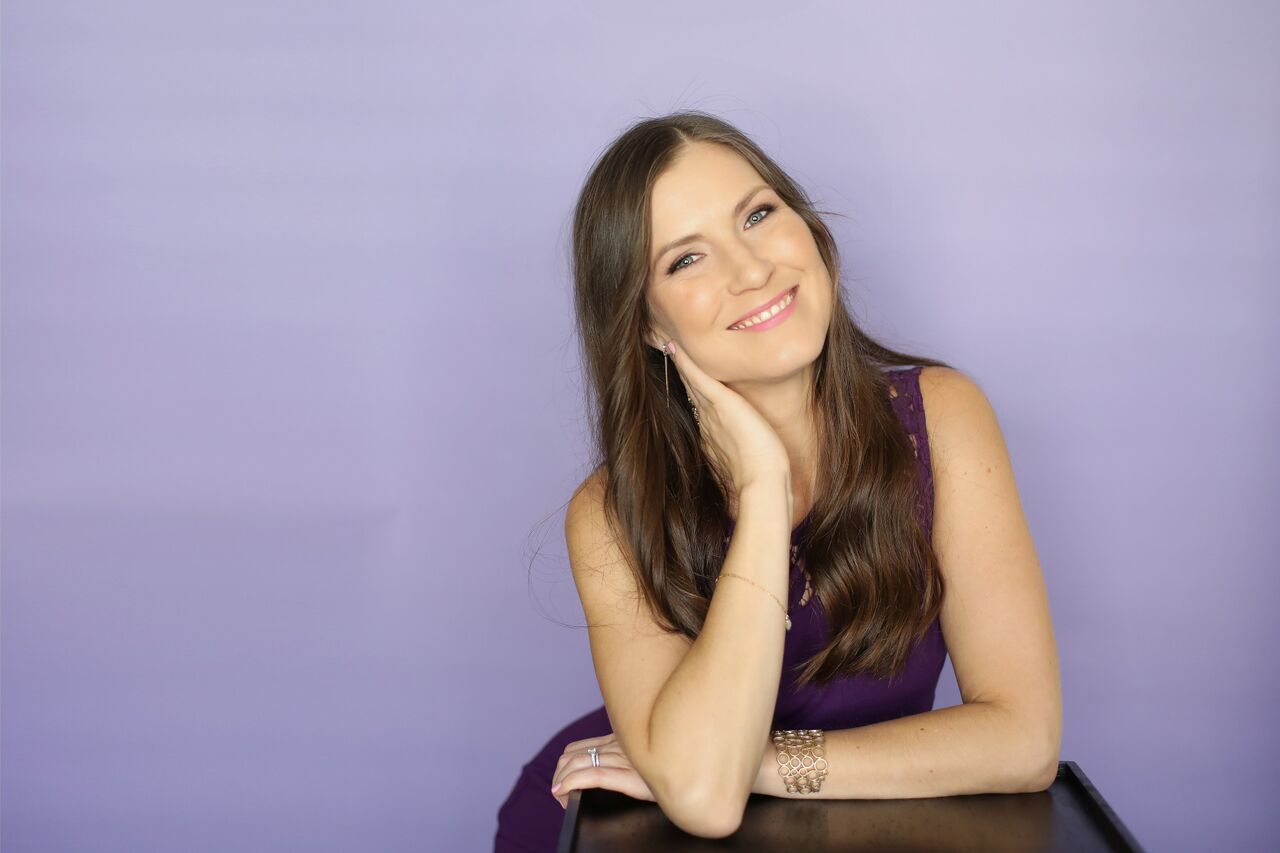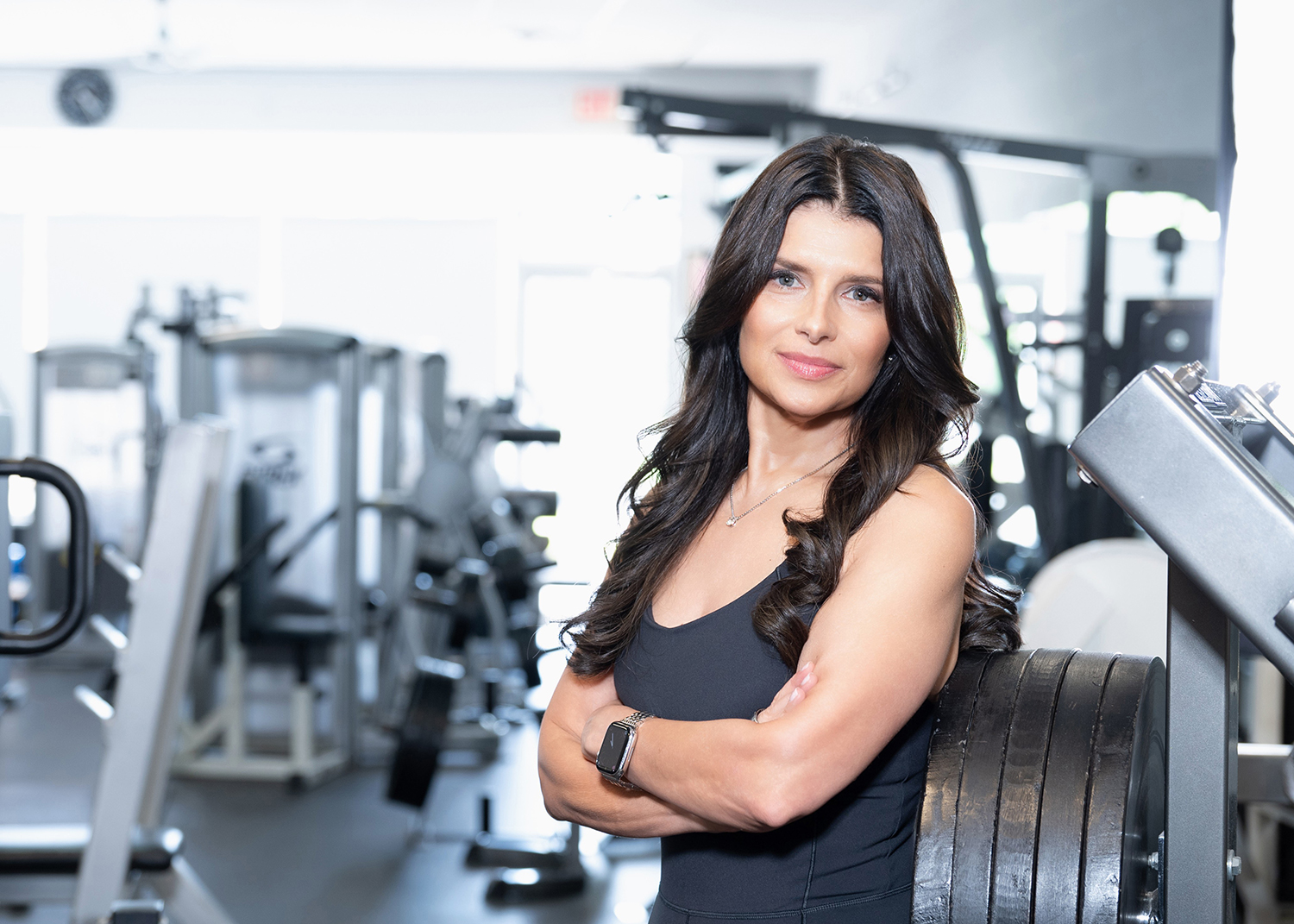Why This Stuff Actually Matters for Women in Canada
Okay so like, I know this might sound kinda weird coming from me, but my mom went through this whole thing last year where she was super stressed about work and family stuff and honestly it was rough to watch. She tried a bunch of different things but what really helped her was finding this coaching program that was actually made for women dealing with emotional stuff. And I started noticing that like, tons of women in Canada are going through similar things but they don't really know where to look for help that actually works.
The thing is, there's a massive difference between programs that just tell you to "think positive" or whatever and ones that actually help you work through the real emotions you're dealing with. My mom explained it to me like this - it's not about pretending everything's fine, it's about learning how to handle your feelings when stuff gets overwhelming. And apparently there's a bunch of good programs here in Canada that focus on this kind of emotional work specifically for women.
What I learned from watching my mom go through this is that emotional balance isn't just some fluffy concept. It's actually super practical stuff that affects how you feel every single day. Like whether you wake up dreading the day or feeling like you can handle whatever comes at you. And the coaching programs that work best are the ones that don't just give you generic advice but actually help you figure out your specific situation.
So I did some research and talked to my mom about what made her program work, and I'm gonna break down the different types of coaching programs that are available in Canada right now. Some of this might sound complicated but I promise it's not - it's just about finding what fits with what you're dealing with.
Different Types of Coaching Programs You Can Actually Find
Alright so there's basically a few main categories of coaching programs that focus on helping women with emotional stuff. Each one has a different approach and works better for different situations. I'm gonna try to explain them in a way that makes sense because honestly some of this stuff gets pretty technical.
Life Coaching Programs That Focus on Emotional Wellness
These are probably the most common ones you'll find. Life coaching programs that specialize in emotional wellness basically work with you to identify what's making you feel overwhelmed or stressed, and then they help you develop strategies to handle those feelings better. From what I understand, these programs usually involve regular sessions where you talk through what's going on in your life and the coach helps you see patterns you might not notice yourself.
The good ones don't just listen and nod - they actually give you specific tools and exercises to practice between sessions. My mom's coach had her doing stuff like journaling about her reactions to stressful situations and tracking what triggered certain emotions. At first she thought it was kinda pointless but after a few weeks she started seeing patterns she never noticed before. Like how certain types of conversations at work would leave her feeling drained for the rest of the day.
In Canada, you can find these programs both online and in person. The online ones are getting really popular because you can do sessions from home and they're usually more affordable. Plus with how spread out Canada is geographically, online coaching means you can work with someone in Vancouver even if you live in Halifax. The important thing is making sure the coach has actual credentials and experience working specifically with women's emotional health.
Mindfulness-Based Coaching Programs
These programs combine coaching with mindfulness practices, which is basically about being more aware of your thoughts and feelings without judging them. I know that sounds kinda vague but it's actually really practical. The idea is that a lot of emotional stress comes from either worrying about the future or replaying the past, so mindfulness helps you stay focused on right now.
What makes these programs different is they include actual meditation and breathing exercises as part of the coaching process. You're not just talking about your problems - you're learning physical techniques to calm your nervous system when you start feeling anxious or overwhelmed. My mom tried some of this and said it was weird at first because she's not really a meditation person, but the breathing stuff actually helped during stressful meetings.
Canadian programs that focus on mindfulness-based coaching often incorporate elements from different traditions but adapt them to work for busy women juggling multiple responsibilities. They're practical about it - like teaching you a five-minute breathing exercise you can do in your car before going into work, rather than expecting you to meditate for an hour every day. The coaches understand that most women don't have unlimited time or energy for self-care practices.
Cognitive Behavioral Coaching
This type of coaching is based on the idea that your thoughts affect your emotions, which affect your behavior. So if you can change your thought patterns, you can change how you feel and act. It's more structured than regular life coaching and focuses on identifying specific negative thought patterns and replacing them with more balanced ones.
The programs that use this approach usually have you tracking your thoughts and emotions pretty carefully. When something happens that makes you feel bad, you write down what you were thinking, how you felt, and what you did. Then you work with the coach to examine whether those thoughts were actually accurate or if you were making assumptions. It sounds simple but apparently it's really effective for dealing with stuff like anxiety and low confidence.
In Canada, cognitive behavioral coaching is getting more recognition as a legitimate approach to emotional wellness. It's particularly good for women who like having a clear framework and measurable progress. You can actually see yourself improving as you get better at catching and changing unhelpful thought patterns. Some programs combine this with other approaches, which can make it even more effective.
What Actually Makes a Coaching Program Work
After learning about all these different types of programs, I started wondering what separates the ones that actually help from the ones that are just taking your money. My mom had tried a couple different coaches before finding one that worked, so she had some opinions about this. Turns out there's some specific things to look for.
The Coach's Training and Experience
This seems obvious but it's super important. Anyone can call themselves a life coach - there's no law against it. But the coaches who actually know what they're doing have specific training and certifications. In Canada, look for coaches who are certified through recognized organizations like the International Coach Federation or who have training in psychology or counseling.
Experience matters too, especially experience working with women dealing with emotional challenges. A coach who's mostly worked with corporate executives might not be the best fit if you're dealing with work-life balance issues or relationship stress. Ask potential coaches about their background and who they typically work with. The good ones won't be offended - they want to make sure they're a good fit too.
Personalization and Flexibility
Programs that use a one-size-fits-all approach usually don't work as well as ones that adapt to your specific situation. Every woman's dealing with different stuff - some are struggling with career stress, some with family dynamics, some with past trauma, some with just feeling stuck and unfulfilled. A good coaching program takes time to understand your particular challenges before jumping into solutions.
This also means the coach should be flexible about adjusting the approach if something isn't working. My mom said her coach would check in regularly about whether the strategies they were using were helpful, and they'd try different things if needed. It wasn't just following some rigid program - it was collaborative and responsive to what was actually happening.
Practical Tools You Can Use
The best programs give you actual techniques and strategies you can use in your daily life, not just insights from talking. This might include breathing exercises, journaling prompts, communication strategies, boundary-setting techniques, or ways to process difficult emotions. The key is that you walk away from each session with something concrete to practice.
These tools should be realistic for your actual life. If you're a single mom working full time, a coach suggesting you need an hour of self-care every morning isn't being helpful. Good coaches understand the constraints women are dealing with and suggest things that can actually fit into a busy schedule. Even five minutes of a specific practice can make a difference if it's the right practice done consistently.
How to Find Programs in Canada That Actually Fit Your Needs
Okay so knowing what types of programs exist is one thing, but actually finding one that works for you is another. There's a lot of options out there and it can get overwhelming pretty fast. Here's what I learned about how to narrow it down.
Start by Identifying What You're Actually Dealing With
Before you start looking at programs, it helps to get clear on what you're hoping to work on. Are you feeling anxious most of the time? Struggling with confidence at work? Having trouble setting boundaries in relationships? Feeling disconnected from yourself? Different programs are better suited to different issues.
You don't need to have everything figured out - part of coaching is getting clarity on what's going on. But having a general sense of what you want help with makes it easier to find a coach who specializes in that area. Some coaches focus more on career and confidence, others on relationships and boundaries, others on processing trauma and building emotional resilience.
Research Options in Your Area or Online
If you prefer in-person coaching, look for coaches in your city or region. Most coaches have websites where they explain their approach and who they work with. Read through several to get a sense of different styles. Some coaches are more structured and directive, others are more exploratory and client-led. Think about what would work better for your personality.
Online coaching has become really common and opens up way more options. You can work with coaches anywhere in Canada or even internationally. The quality of online coaching is just as good as in-person when you find the right fit. Video calls allow for the same level of connection, and some people actually find it easier to open up when they're in their own space.
Look for Free Consultations
Most reputable coaches offer a free initial consultation, usually fifteen to thirty minutes. This is your chance to ask questions about their approach, their experience, and how they work. It's also a chance to see if you feel comfortable with them. The relationship between you and your coach really matters - you need to feel like you can be honest and vulnerable.
During these consultations, pay attention to whether the coach asks good questions about your situation or just talks about themselves and their methods. Good coaches are curious about you and what you're dealing with. They should also be clear about their fees, how often they recommend meeting, and what kind of commitment they're looking for.
What to Expect When You Start Working with a Coach
I think a lot of women don't try coaching because they're not sure what it actually involves. My mom was nervous about it at first too. So here's a realistic picture of what it's usually like, based on what she told me and what I learned from research.
The First Few Sessions
The beginning is mostly about the coach getting to know you and your situation. They'll ask a lot of questions about what's going on in your life, what you're struggling with, what you've tried before, and what you're hoping to change. This can actually be really helpful in itself because most women don't take time to really think through and articulate what they're dealing with.
You'll probably work together to set some goals. These don't have to be huge - sometimes the goal is just "feel less anxious" or "have more energy" or "stop feeling guilty all the time." The coach helps you get more specific about what success would look like and how you'll know if you're making progress. This gives you both something to work toward.
Regular Sessions and Practice
Most coaching programs involve regular sessions, usually weekly or every other week. Sessions are typically forty-five minutes to an hour. Between sessions, you'll practice whatever tools or strategies you discussed. This is where the real work happens - the sessions are for learning and reflecting, but the practice is where you actually build new skills and patterns.
Honestly, this part requires some commitment. You're not going to see changes if you just show up to sessions but don't practice anything between them. But the practice doesn't have to be complicated or time-consuming. Even spending ten minutes a day on specific exercises can make a real difference over time. The key is consistency more than intensity.
Progress and Adjustments
Good coaching programs include regular check-ins about how things are going. You and your coach should talk about what's working and what isn't. Sometimes you'll need to adjust the approach or focus on different issues than you originally planned. That's normal - as you work on one thing, other things often come up.
Progress isn't usually linear. You'll probably have weeks where you feel like you're making huge strides and weeks where you feel stuck. That's part of the process. What matters is the overall trajectory over time. My mom said it took about two months before she really noticed a difference in how she was handling stress, and then things continued improving from there.
Real Benefits Women Report from These Programs
I wanted to include this section because I think it helps to know what kind of changes are actually realistic to expect. These aren't like miracle cures or whatever - they're real, practical improvements that make daily life better.
Better Emotional Regulation
This is probably the most common benefit. Women report feeling less overwhelmed by their emotions and more able to handle difficult feelings when they come up. Instead of being completely knocked over by anxiety or anger or sadness, they have tools to work through those emotions. This doesn't mean emotions go away - it means you get better at processing them.
My mom described it as feeling like she had more space between feeling something and reacting to it. Before coaching, if something stressful happened, she'd immediately get anxious and that anxiety would spiral. After working with her coach, she could notice the anxiety starting but pause and use her breathing techniques or reframe her thoughts before it got out of control.
Increased Confidence and Self-Worth
A lot of women struggle with feeling like they're not good enough or constantly doubting themselves. Coaching programs that focus on emotional wellness often help women recognize their own worth and capabilities. This isn't about fake positive thinking - it's about challenging the negative beliefs that aren't actually true.
Women report feeling more confident in setting boundaries, speaking up for themselves, and making decisions. They stop second-guessing everything and trust themselves more. This affects everything from work situations to personal relationships. It's one of those changes that ripples out into all areas of life.
Better Relationships
When you're more emotionally balanced and confident, your relationships usually improve too. Women often report communicating better with partners, family members, and friends. They're able to express their needs more clearly and handle conflicts more constructively. They also tend to attract healthier relationships because they're better at recognizing and avoiding unhealthy patterns.
This was actually one of the biggest changes my mom noticed. She said she stopped trying to manage everyone else's emotions and taking responsibility for how other people felt. She got better at maintaining boundaries without feeling guilty, which made her relationships less draining and more genuine.
Things to Watch Out For
Not every coaching program is good, and some are actually kind of predatory. Here's what to be careful about when you're looking for help with emotional wellness.
Coaches Who Promise Quick Fixes
If a coach or program promises you'll be completely transformed in a few weeks or that they have some secret method that works for everyone, that's a red flag. Real emotional work takes time and effort. Good coaches are honest about this. They'll tell you that you'll see progress but that sustainable change requires consistent practice over several months.
Be especially wary of programs that use a lot of hype or pressure tactics. Legitimate coaches don't need to pressure you into signing up immediately or make you feel like you're missing out if you don't commit right away. They understand that choosing a coach is an important decision and they're comfortable letting you take your time.
Programs That Are Vague About Methods
Good coaches can explain their approach clearly. They should be able to tell you what methods they use, why those methods work, and what you can expect from the process. If a coach is really vague or talks mostly in buzzwords without giving you concrete information about how they actually work, that's concerning.
You should understand what you're paying for. That includes how many sessions, how long each session is, what kind of support is available between sessions, and what specific techniques or tools you'll learn. If a coach won't give you clear answers to these questions, keep looking.
Coaches Who Don't Acknowledge Their Limitations
Coaching isn't therapy, and good coaches know the difference. If you're dealing with serious mental health issues like severe depression, trauma, or suicidal thoughts, you need a licensed therapist or counselor, not a coach. Responsible coaches will tell you this and refer you to appropriate mental health professionals when needed.
Be cautious of coaches who act like they can help with anything or who discourage you from seeing other professionals. Good coaches often work alongside therapists and don't see it as competition. They understand that different types of support serve different purposes.
Making the Investment Worth It
Coaching programs aren't cheap. Most coaches charge anywhere from seventy-five to two hundred dollars per session in Canada, and programs typically involve multiple sessions over several months. That's a significant investment for most women. So it's worth thinking about how to make sure you actually get value from it.
Be Honest and Open
Coaching only works if you're willing to be real about what's going on. I know that's hard - it's uncomfortable to admit you're struggling or to talk about things you're not proud of. But if you're not honest with your coach, they can't actually help you. They're not there to judge you - they're there to help you work through stuff.
My mom said this was one of the hardest parts at first. She was used to acting like everything was fine and presenting a certain image. Learning to drop that and be vulnerable with her coach felt risky. But once she did, the coaching became way more effective because they could address what was really going on instead of surface-level stuff.
Do the Work Between Sessions
I mentioned this before but it's worth repeating - the real change happens in what you practice between sessions, not just in the sessions themselves. If your coach gives you exercises or asks you to try certain things, actually do them. Keep track of what happens. Reflect on what you notice. Bring that information back to your next session.
Think of it like working with a personal trainer. The hour you spend at the gym matters, but what really gets you results is what you do the rest of the week. Coaching for emotional wellness is the same way. The sessions give you guidance and support, but you have to put in consistent effort to see real change.
Give It Enough Time
Don't expect everything to change after one or two sessions. Emotional patterns and habits develop over years - they take time to shift. Most people start noticing real differences after about two to three months of consistent coaching. Some changes happen faster, but the deep, lasting shifts usually take longer.
That said, you should feel like the coaching is helpful relatively early on. Even if the big changes take time, you should feel supported and like you're learning useful things from the beginning. If you're several sessions in and getting nothing out of it, it might not be the right fit and that's okay. It's worth trying a different coach rather than sticking with something that isn't working.
Why This Matters for Women Specifically
You might be wondering why there are coaching programs specifically for women. Can't these same approaches work for anyone? Yeah, they can. But there are some specific things women deal with that make specialized programs really valuable.
Women face particular types of stress and emotional challenges that come from societal expectations and pressures. There's pressure to be nurturing and accommodating while also being successful and ambitious. To take care of everyone else while also taking care of yourself. To be confident but not aggressive. To have feelings but not too many feelings. These contradictory messages create a lot of internal conflict and stress.
Programs designed for women understand this context. The coaches get what you're dealing with without you having to explain all the background. They understand why setting boundaries feels impossibly hard or why you might feel guilty for prioritizing your own needs. They can help you work through these issues in a way that accounts for the real pressures you're facing.
There's also something valuable about working with a coach who shares some of your experiences. Women coaches who specialize in working with women clients often have insight that comes from their own navigation of similar challenges. They're not just applying theory - they're drawing on lived understanding of what it's like.
Moving Forward with What Actually Works
So here's what I think is important to take away from all this. Coaching programs can genuinely help women feel better about themselves and handle emotional challenges more effectively. But not all programs are created equal, and finding the right fit matters a lot. The good news is there are solid options available in Canada, both online and in person.
The key is being thoughtful about what you're looking for and doing some research before committing to a program. Take advantage of free consultations to get a sense of different coaches and approaches. Trust your instincts about who you'd feel comfortable working with. And be realistic about the investment of time and money while also recognizing that your emotional wellness is worth investing in.
If you're struggling with stress, anxiety, low confidence, or just feeling stuck, coaching might be exactly what you need. It's not about being broken or needing to be fixed - it's about learning skills and developing awareness that help you navigate life more effectively. Every woman deserves to feel good about herself and have the tools to handle whatever comes her way. Sometimes you just need the right support and guidance to get there.




